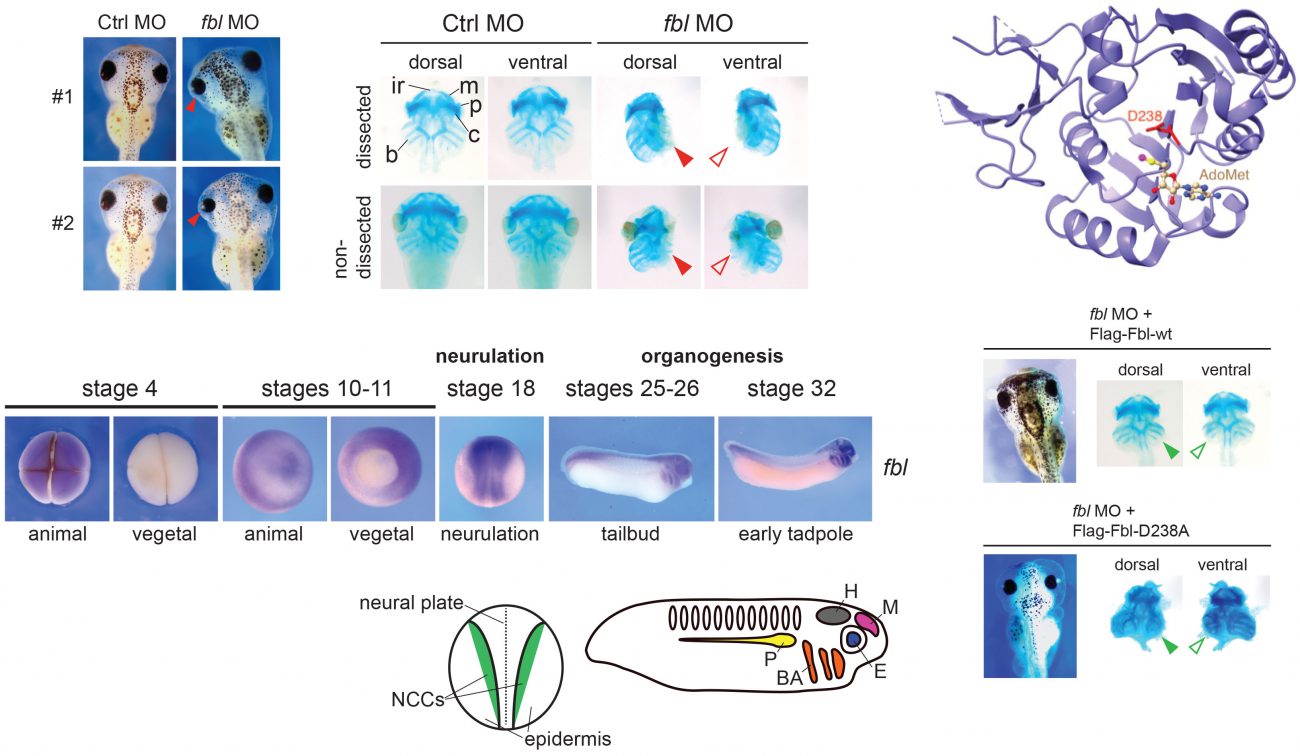
Ribosomes are essential nanomachines responsible for protein production in all cells. Ribosomopathies are diseases caused by improper ribosome formation due to mutations in ribosomal proteins or ribosome assembly factors. Such diseases primarily affect the brain and blood, and it is unclear how malfunctioning of a process as general as ribosome formation can lead to tissue-specific diseases. Here we have examined how fibrillarin, an enzyme which modifies ribosomal RNA by adding methyl groups at specific sites, affects early embryonic development in the frog Xenopus laevis. We have revealed its importance in the maturation of cells forming an embryonic structure called the neural crest. Fibrillarin depletion leads to reduced eye size and abnormal head shape, reminiscent of other conditions such as Treacher Collins syndrome. Molecularly, the observed phenotypes are explainable by increased p53-dependent programmed cell death triggered by inhibition of certain pre-rRNA processing steps. Our systematic investigation of the ribosomal RNA 2’-O methylation repertoire across development has further revealed hypomodification at a late stage of development, which might play a role in late developmental transitions involving differential translation by compositionally different ribosomes.
For details see Delhermite et al. PLoS Genetics, January 18, 2022